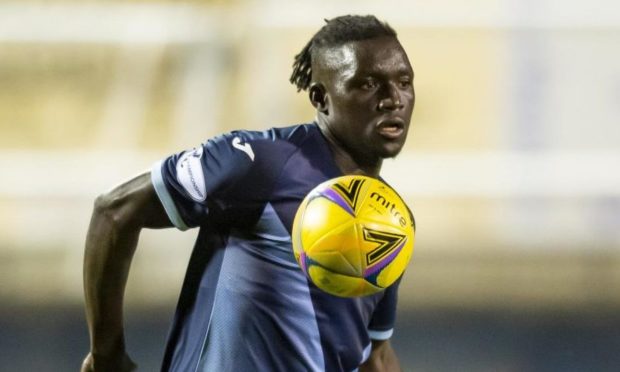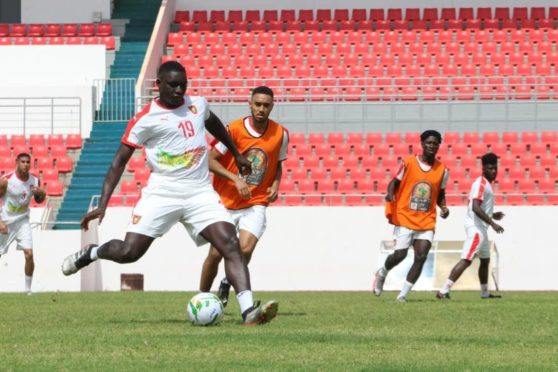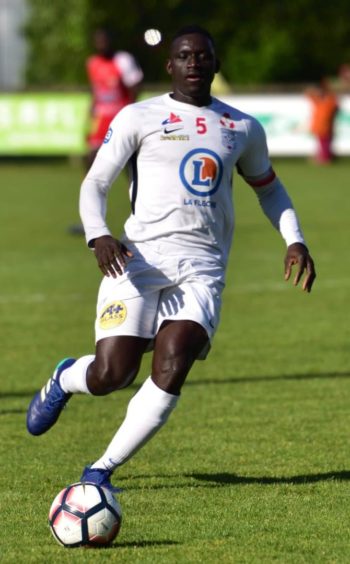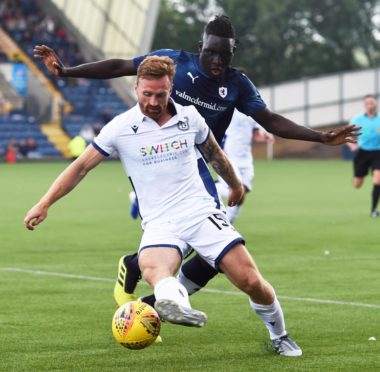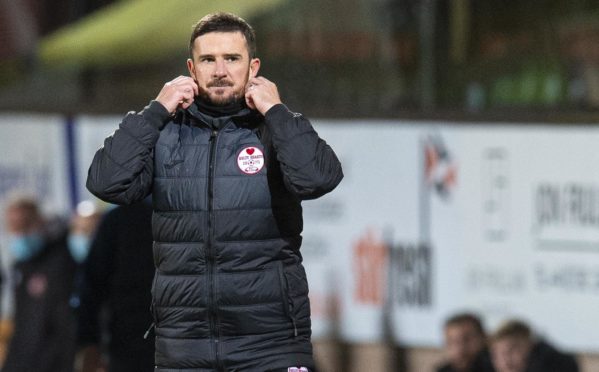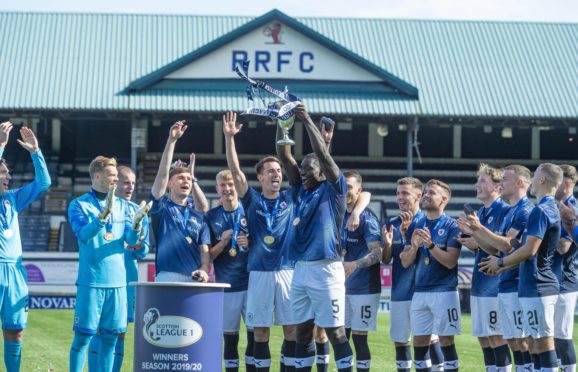“Football saved my life. Really. If not for football, maybe things would have a different ending.”
Fernandy Mendy delivers the words with a startling lack of sentimentality. That’s just the way it was. Upward mobility was a foreign concept in his concrete block in Saint–Nazaire, 30 miles from the French city of Nantes.
“People sold drugs and there were a lot of bad things happening,” he adds. “There were a lot of minorities there and we had fewer opportunities than the people in the city centre. You are treated differently and it is difficult to get out. People turn to dangerous things and no-one helps.
“But my dad warned me that I needed to be serious. No selling drugs; no smoking; no breaking the law. Just go to school and play football.
“I have five brothers and one sister, and I am the oldest. So, I need to do everything right. I need to make sure my younger siblings look at me and say: ‘That is the influence to follow’. That is why I have always stayed focused.”
Mendy’s footballing story in the past 18 months is a remarkable one. In December 2019, he played his final match for Lowland League side Kelty Hearts, having been loaned out by Raith Rovers following a debut of such disastrous proportions that he spent the night weeping over the phone to his wife, Clotilde.
In March 2021, he was part of the Guinea-Bissau squad which qualified for the Africa Cup of Nations (AFCON) following a 3-0 victory over Congo. As a result, he could conceivably be pitting his wits against the likes of Sadio Mane, Riyad Mahrez or Mo Salah next year.
Yet, that rise to prominence pales in significance to the personal journey Mendy has undertaken from Senegal to the Lang Toun.
From Senegal to Stark’s Park
“I did not speak the language and everything was different. The people; the food; the weather. All I did was go to school then come home,” recalls Mendy of his early months in France.
His family moved to Saint–Nazaire when he was nine and despite his cognisance of the difficulties they endured – from prejudice to loneliness – his recollections are far from bleak.
“We did not expect life to be easy,” he says, before flashing a Megawatt smile and recalling the escape he found with a ball at his feet. A universal language. Ultimately, that was to be his literal escape when a scout for Angers spotted this precociously strong, confident defender.
The offer to join a professional set-up was hungrily accepted, but not without the words of his father, Paul, ringing in his ear.
“He told me to go, but stay in school and keep learning. ‘If you don’t do that, then I’ll drag you home.’” Paul pops up with regularity in Mendy’s anecdotes, usually extolling the virtues of education and hard work. That message landed.
Five years followed which Mendy describes as the hardest of his life. A teenager away from home, friends and family. School; training; sleep; repeat. And it did not result in him playing for the Angers first-team.
Instead, In his early twenties, he found himself in the fifth tier of French football with Racing Club Flèchois, tinkering with trucks for a living and considering his next step as he prepared to welcome his first child – a daughter – into the world.
“From 7 a.m. to 5 p.m., every day. I would place the engines in the trucks and make sure everything was connected,” he says. “Then on Monday, Wednesday and Friday, I would drive to training an hour away and play until 10 p.m.. I did that for two years. When I had my first child, I took a look at things and decided: this is not me, this is not my life.”
The words proved prophetic when Mendy was approached by a representative of the ExperienceUK agency and offered the opportunity to go on trial with Raith Rovers in 2019.
NANDO NUMBER FIVE! 🎵
Fernandy Mendy grabbed his first goal for @RaithRovers during the 5-0 win against @Morton_FC
Our channel has:
☑️ Match highlights
☑️ Post match interviews
☑️ Our halftime feature with David McGurnhttps://t.co/3rhla4HULF pic.twitter.com/BAUXT5f3Iv— RaithTV (@RaithTV) November 8, 2020
After an initial hitch (“I thought he was joking and hung up the phone. I told him not to call me back.”) Mendy realised it was not a wind-up, grasped the nettle and shone during his week training with Rovers. A contract offer followed in the summer.
“I went into my job at 10 a.m., three hours late, and the boss says: ‘Why are you so late? What do you think you are doing?’ And I quit on the spot,” Mendy laughs. “I still remember him saying: ‘Nando, you can’t do that. You have a family, kids. You are crazy. You can’t change everything.’ I said: ‘No, you can’t change. I can. You don’t know my life.’”
Tears and fears
In the Hallmark movie of Mendy’s life, that’s the happy ending. Screen fades to black; credits roll. As it happens, there were a few more bumps in the road, most notably when he gave away a penalty kick on his debut and was responsible for another goal in Rovers’ 3-0 defeat against Dundee.
“I played the worst game of my life,” he said. “I called my wife back home and I was crying, because when you come to a new place, you need to show something good.
“Dundee were a strong team and I didn’t speak the language. It was a nightmare. It hurt that supporters saw me for the first time and thought I was a player like that.”
When he was swiftly loaned out to Kelty Hearts in the Lowland League, few would have bet on him ever pulling on the dark blue of Raith Rovers again. Yet, the switch – which some may have been chastened by – was the making of Mendy.
Special praise is reserved for Barry Ferguson, the Maroon Machine manager, who proved to be the perfect boss at the perfect time – even if Mendy did not have the faintest idea who the former Rangers and Scotland captain was.
“That experience changed my career,” he continues. “My agent asked me if I knew who Barry Ferguson was and I said ‘I don’t know – it doesn’t matter’. I just wanted to work hard for a new coach. He said: ‘Come on, this guy is a Scotland legend. A Rangers legend. He is their David Beckham!’
“For me, all that matters is he is an amazing guy. He spoke to me with honesty and believed in me. He helped me so much and when I got my Guinea-Bissau call-up, he texted me to say well done and told me to keep up my progress.”
Mendy disputes the notion that he returned to Rovers a different player. “I was the same player, but I could show what I was capable of. I was confident and my English improved. My English is now better than Ross Matthews!”
He has also been joined by his wife and two children in Scotland and is the picture of contentment.
Que Salah, Salah
Mendy’s performances for Raith – although he would have liked to have made more than his nine appearances to date this season – were sufficient to catch the eye of Guinea-Bissau manager Baciro Candé.
He was an unused substitute for last month’s victories over Eswatini and Congo – two must-win qualifiers are no time for experimentation – but received enough positivity from the head coach to foster real hopes that he could be in the squad which competes at the AFCON in Cameroon next January.
Although born in Senegal, Mendy is fiercely proud of his Guinea-Bissau roots. His father and grandparents, Louis and Bronia, were born there and he speaks one of the native languages, Mandjak, which he is teaching to his own children.
Grandad Louis passed away last year, something that was uppermost in his thoughts when Bronia visited Mendy on international duty.
“She was crying so much – so proud of how far I had come,” he smiled. “I lost my grandad last year but I think he is proud too.
“When I was young, he used to say: ‘Why do you always talk about playing for Senegal or France? Why don’t you play for Guinea-Bissau?’ Well, if he sees me now, then he will be a very happy man!
“When he was alive, he was the person who would tell me to keep believing. When I got the call to have a trial at Raith Rovers, I spoke to him first and asked for his advice and he said: ‘Just go. Everything will be right for you.’ I love that he was right.”
